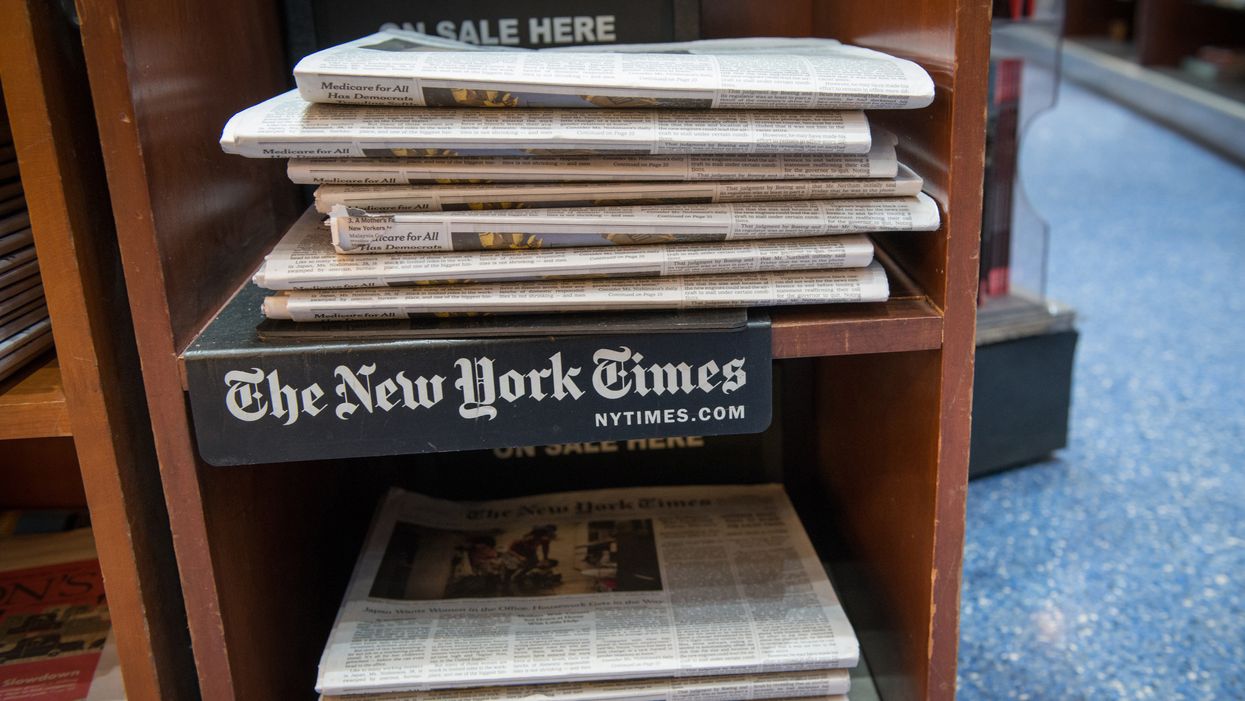
Tiffany Hagler-Geard/Bloomberg via Getty Images

Picking sides
Analysis of keywords in news stories found that usage of terms common among social justice warriors — like "privilege," "racism," and "discrimination" — has risen dramatically in recent years.
Zach Goldberg is a Ph.D. candidate at Georgia State University. Since May 28 he has tweeted a thread of graphics showing the prevalence of search terms in LexisNexis. The Nexis side of that company has news transcripts dating back to the 1990s, although some of the earlier years are missing transcripts particularly for television news.
According to Goldberg, the usage of certain words like "privilege," "marginalized," and "discrimination" has drastically spiked over the past few years at the New York Times. Meanwhile, mundane control terms he checked remained fairly consistent throughout.
He discussed this further in an article he wrote for Tablet Magazine, in which he noted that, according to a 2018 study by American National Election Studies, white American liberals were the only group that self-reported bias against their own ethnic group (as opposed to Black, Hispanic, Asian, and non-liberal white respondents). He argued that both trends were connected and indicative of white liberals in American becoming "radically more liberal."
Far Left Media Is Making Liberals Insane, This Data Proves Itwww.youtube.com
In a Twitter thread on May 29, Goldberg broke down the results of several Nexis searches he ran to track keywords.
First, Goldberg looked at the all news articles in Nexis. However, since the number of news outlets included in the Nexis database has grown over time, this in itself may not be scientific. For example, the early years in Nexis contain few or no blogs or news websites. His next series of charts, though, looked at only words that appeared in the New York Times. This is a much better indicator because it's a single source, and as one of the largest U.S. newspapers, it would have been cataloged by Nexis early and fairly consistently.
The terms that spiked dramatically in the Times included "privilege," "discrimination," "social justice," "police brutality," "marginalized," "people of color," "diversity," and "racism." Racism, for example, for years appeared in about 0.5 percent of all Times articles, according to Goldberg. In 2015, that number began to rise, and by 2018 it had risen quadrupled to more than 2 percent of all stories.
An initial spike in this data in the early 2000s could be attributed to more articles being added as the Nexis database grew. However, as the years progress it's clear this is a trend and not just a fluke of the older data.
One of the few terms to show any signs of decreasing was "political correctness," which hovered around or under 100 mentions a year, until it spiked to nearly 400 mentions in 2017 and dropped back off slightly in 2018.
Goldberg noted that his search would have left out many related terms that failed to use that exact wording.
He also tested control words, including "toaster," "garbage can," and "Orange Juice" to see if they followed the same trends. "Orange Juice" spiked around the time of the O.J. Simpson trial in 1995, but other than that these terms seemed to go up and down sporadically but not to increase over time at the same rate that the politicized terms did.